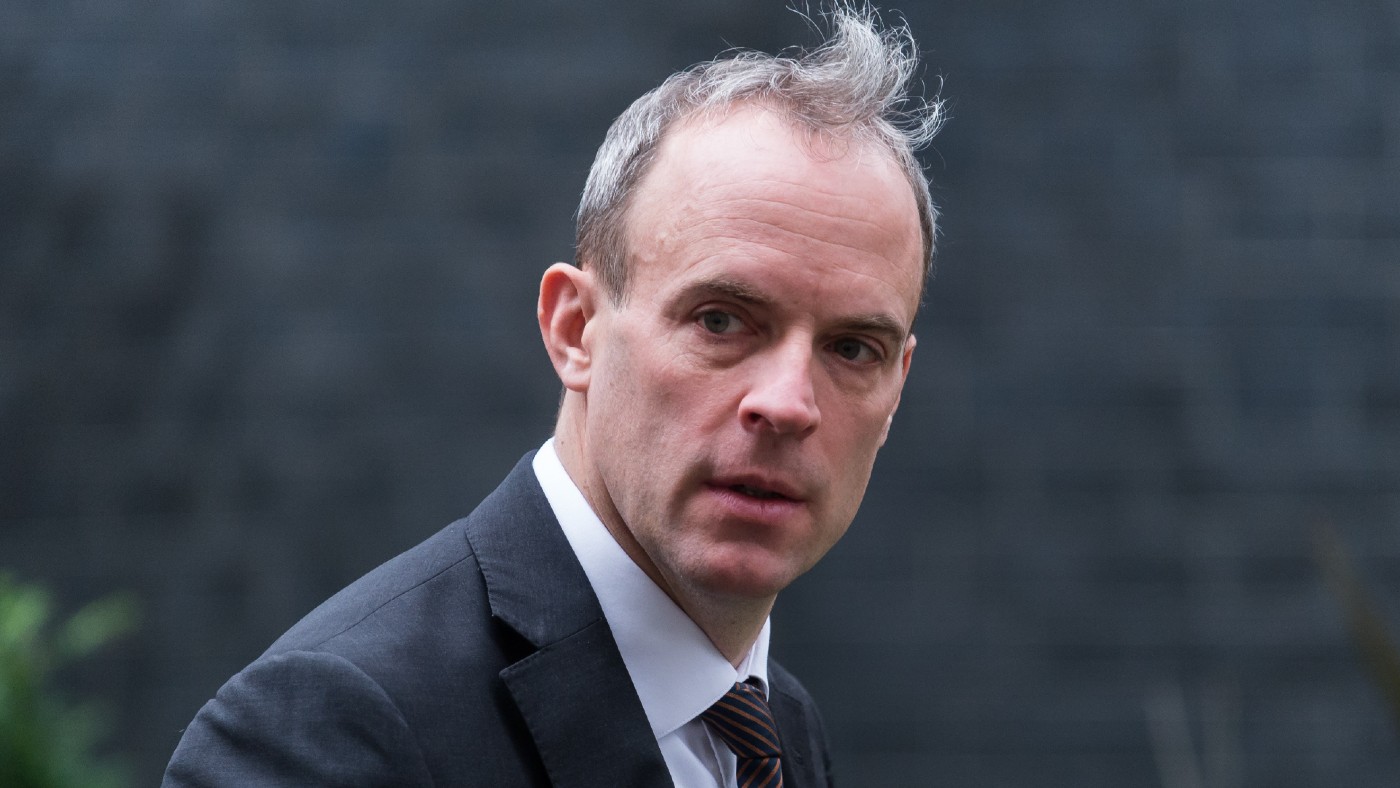Dominic Raab’s ‘power of veto’ for dangerous criminals explained
Ministers want to be in charge of changing release dates of the most high-risk offenders

A free daily email with the biggest news stories of the day – and the best features from TheWeek.com
You are now subscribed
Your newsletter sign-up was successful
Dominic Raab wants the government to have the power to veto parole board decisions in a crackdown on the release of dangerous criminals.
The justice secretary is due to announce a “root-and-branch” review of the parole system, which will include plans that could allow him to overrule the parole board “in the most high-profile and sensitive cases involving murder, rape, terrorism and ‘those who have caused or allowed the death of a child’”, reported The Telegraph.
It will be the “biggest shake-up” of the board in its 54-year history and is designed to prevent repeats of scandals including the release of double-child murderer Colin Pitchfork, and an abandoned decision to free black-cab rapist John Worboys, said the paper.
The Week
Escape your echo chamber. Get the facts behind the news, plus analysis from multiple perspectives.

Sign up for The Week's Free Newsletters
From our morning news briefing to a weekly Good News Newsletter, get the best of The Week delivered directly to your inbox.
From our morning news briefing to a weekly Good News Newsletter, get the best of The Week delivered directly to your inbox.
Up to 100 criminals could be prevented from being released under the plans. Officials will sift through “more than 600 cases” a year where the parole board has recommended release in order to identify cases that could be reviewed by the justice minister who could then veto the decision and keep offenders locked up.
The move will restore powers to block the release of high-risk criminals, once held by ministers, but which were removed after legal challenges in Europe and the UK found that allowing politicians rather than judges to determine sentence lengths breached the human rights of prisoners.
Raab is hoping the review will allow the justice department to “focus on protecting the public – rather than the rights of offenders – by offering more prescriptive guidance on when prisoners should be freed”, wrote The Independent.
“Keeping the public safe is Government’s first duty, and the British people expect us to keep dangerous criminals behind bars for as long as necessary to protect them. I am not satisfied our approach is as robust as it needs to be, which is why I’ll be setting out plans to restore public confidence in the system,” the justice minister added.
A free daily email with the biggest news stories of the day – and the best features from TheWeek.com
Victims will also be given the right to attend parole hearings in full for the first time, “as set out in the Conservative Party’s 2019 manifesto”, noted Sky News. The parole board will also be required to take into account submissions made by victims, and they will be allowed to ask questions in the submissions.
Legal challenges likely
Raab is likely to face legal challenges to his plans, however, as a senior judicial source fears the state will be “acting not only as prosecutor but also as judge and jury”.
Ministers have taken legal advice and are “confident” that they will be able to see off court appeals to block the new powers from coming into force, reported The Telegraph. But a legal source has warned that handing powers to politicians to take a role in the sentencing could threaten the independence of the judiciary.
“We will end up in a position where the Crown Prosecution Service is going to be prosecuting someone but they want to make sure they have someone on the jury to reach the verdict they want to get,” said the source.
“It interferes with the independence of the judiciary. It will need primary legislation and I don’t know how that would tackle the issue of [the state] effectively wanting to be judge, jury and executioner”.
-
 The ‘ravenous’ demand for Cornish minerals
The ‘ravenous’ demand for Cornish mineralsUnder the Radar Growing need for critical minerals to power tech has intensified ‘appetite’ for lithium, which could be a ‘huge boon’ for local economy
-
 Why are election experts taking Trump’s midterm threats seriously?
Why are election experts taking Trump’s midterm threats seriously?IN THE SPOTLIGHT As the president muses about polling place deployments and a centralized electoral system aimed at one-party control, lawmakers are taking this administration at its word
-
 ‘Restaurateurs have become millionaires’
‘Restaurateurs have become millionaires’Instant Opinion Opinion, comment and editorials of the day
-
 Judge ends Eric Adams case, Trump leverage
Judge ends Eric Adams case, Trump leverageSpeed Read Federal corruption charges against New York City Mayor Eric Adams were dismissed, as requested by Trump's Justice Department
-
 DOJ demands changes at 'abhorrent' Atlanta jail
DOJ demands changes at 'abhorrent' Atlanta jailSpeed Read Georgia's Fulton County Jail subjects inmates to 'unconstitutional' conditions, the 16-month investigation found
-
 DOJ charges 2 in white nationalist 'Terrorgram' plot
DOJ charges 2 in white nationalist 'Terrorgram' plotFeds say Dallas Humber and Matthew Allison were plotting assassinations through a terrorist network on Telegram
-
 Jack Smith: the special prosecutor taking on Donald Trump
Jack Smith: the special prosecutor taking on Donald TrumpIn the Spotlight The Department of Justice has now brought two indictments against Trump following Smith’s investigations
-
 Why gunshot victim has been charged over death of her unborn baby
Why gunshot victim has been charged over death of her unborn babyIn Depth Marshae Jones, 27, to face manslaughter trial in Alabama after being shot
-
 Has privatised probation failed?
Has privatised probation failed?Speed Read As the government prepares to scrap its contracts in this sector, questions over the viability of the system have arisen